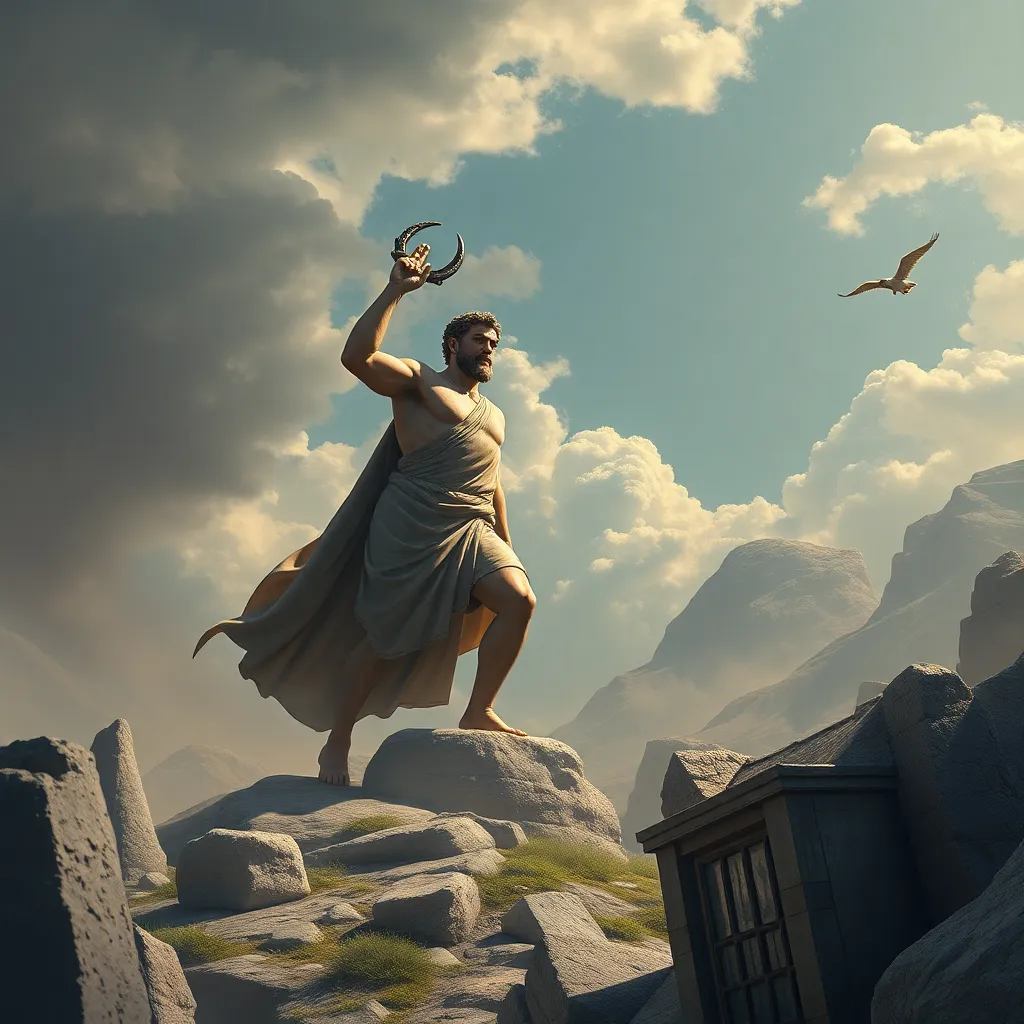The Trials of Theseus: Lessons in Resilience and Strength
I. Introduction
The myth of Theseus is one of the most captivating tales in Greek mythology, illustrating the journey of a hero who faced numerous trials and challenges. Theseus, a figure of immense strength and resilience, serves as a testament to the human spirit’s ability to confront adversity. His story is not just an adventure; it embodies the vital importance of resilience and strength when faced with life’s challenges.
This article aims to explore the lessons that can be derived from Theseus’s trials, shedding light on how these ancient stories continue to resonate in our modern lives.
II. The Myth of Theseus: A Hero’s Journey
Theseus, born to Aegeus, the king of Athens, is a central figure in Greek mythology. His significance lies not only in his lineage but also in his heroic deeds that exemplify the qualities of a true hero. Unlike the traditional warriors of his time, Theseus’s strength was complemented by his intelligence and resourcefulness.
Among his key trials, Theseus faced the likes of the Minotaur, bandits, and various mythical creatures. Each adventure showcased his bravery and determination, making him a symbol of heroism in ancient Greek culture. The concept of heroism was not merely about physical strength but also about moral integrity and the willingness to fight for the greater good.
III. The Labyrinth and the Minotaur: Confronting Fear
The most famous of Theseus’s trials is undoubtedly his confrontation with the Minotaur, a monstrous creature that resided within the Labyrinth on the island of Crete. The Labyrinth, designed by Daedalus, was an intricate maze that was nearly impossible to escape once entered.
To navigate the labyrinth, Theseus employed a clever strategy: he took a ball of thread given to him by Ariadne, the daughter of King Minos. By tying one end at the entrance and unraveling it as he ventured deeper, he created a path to follow back out.
This episode teaches profound lessons about confronting fears and overcoming obstacles:
- Preparation is key: Just as Theseus prepared with the thread, planning is essential in facing challenges.
- Facing fears head-on: Theseus did not shy away from the Minotaur; he confronted it, illustrating the importance of bravery.
- Resourcefulness: Utilizing available resources effectively can lead to successful outcomes.
IV. The Journey to Athens: The Power of Determination
Theseus’s journey to Athens was fraught with peril. Along the way, he encountered numerous challenges, including bandits and wild animals. Each trial tested his resolve and determination.
This part of his journey highlights the importance of perseverance in pursuing one’s goals. Theseus exemplified how determination could propel one through even the darkest of times. The lessons learned include:
- Commitment: Staying focused on a goal, regardless of the obstacles, is crucial for success.
- Resilience: Each setback can be a stepping stone to greater achievements if one remains steadfast.
- Self-belief: Trusting in one’s abilities is essential when facing challenges.
V. The Tragic Loss of Ariadne: Embracing Vulnerability
The relationship between Theseus and Ariadne is both beautiful and tragic. After helping Theseus escape the Labyrinth, Ariadne was abandoned by him on the island of Naxos. This act led to her emotional turmoil and highlighted the complexities of human relationships.
The emotional impact of loss and betrayal is profound. Theseus’s journey teaches us valuable lessons about vulnerability:
- Emotional strength: Embracing vulnerability can lead to personal growth.
- Acceptance of loss: Acknowledging and processing emotions is vital for moving forward.
- Resilience in relationships: Understanding that relationships can lead to both joy and pain is part of the human experience.
VI. The Return to Athens: The Burden of Leadership
Upon returning to Athens, Theseus faced the expectations and responsibilities of leadership. As a king, he was burdened with the welfare of his people and the challenges that came with governance.
This phase of his life illustrates the weight of leadership and the resilience required to bear such responsibilities. The lessons learned include:
- Responsibility: Leaders must make difficult decisions that affect many.
- Resilience in adversity: Challenges are a part of leadership; facing them with courage is essential.
- Empathy: Understanding the needs and struggles of others is crucial for effective leadership.
VII. The Legacy of Theseus: Inspiring Future Generations
The cultural impact of Theseus’s story has endured through history. His trials and tribulations continue to resonate, inspiring generations to strive for resilience and strength in their own lives. The lessons from his journey are timeless and relevant even in contemporary society.
Through literature, art, and various forms of storytelling, the legacy of Theseus teaches valuable life lessons:
- Heroism is multifaceted: It encompasses strength, intelligence, and moral integrity.
- Resilience is a universal theme: The challenges faced by Theseus are reflective of those encountered in modern life.
- Myths serve a purpose: They provide insight into human nature and the values we hold dear.
VIII. Conclusion
In recap, the trials of Theseus offer profound lessons on resilience and strength. From confronting fears to embracing vulnerability, each stage of his journey imparts wisdom that is applicable to our daily lives. As we face our own challenges, we are encouraged to embody the spirit of Theseus—facing adversity with courage and determination.
In a world that often tests our limits, Theseus’s journey reminds us of the enduring relevance of resilience and strength in overcoming personal challenges. Let us draw inspiration from his story and strive to embrace these qualities in our own lives.




